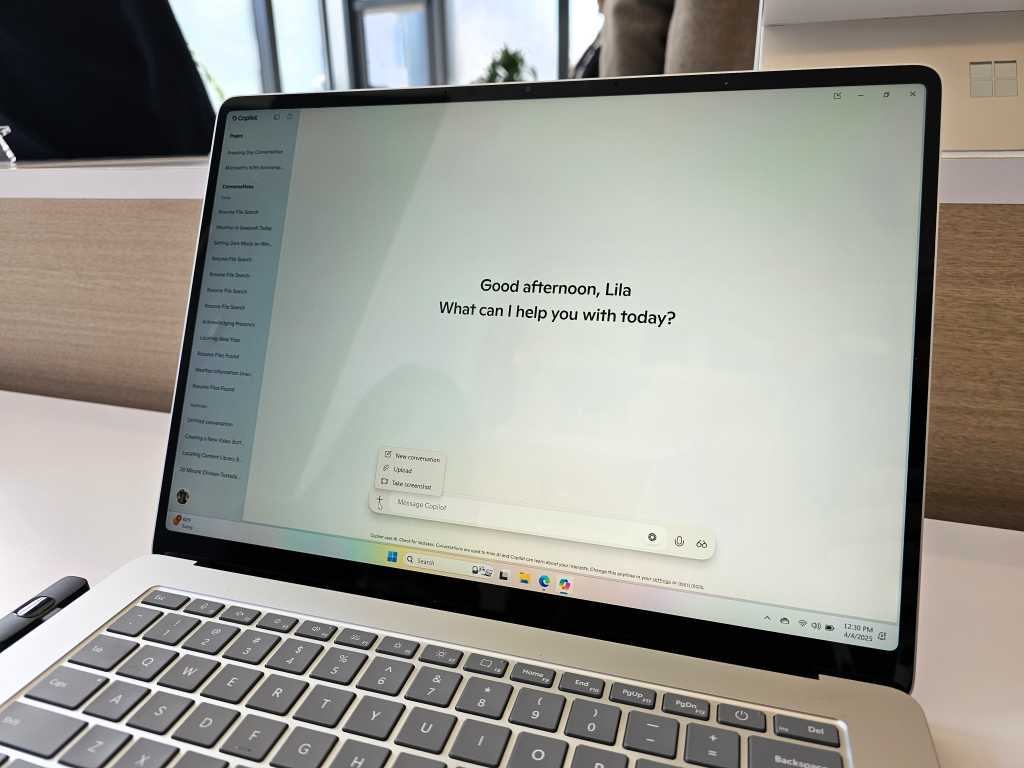Microsoft’s Copilot: Vision and Shopping Shine, While Others Disappoint

Microsoft Unveils New AI Features to Celebrate 50 Years
Last week, during Microsoft’s 50th birthday celebration in Redmond, the company introduced a range of exciting AI features. I had the opportunity to experience many of them firsthand. Among these innovations, Copilot Vision holds significant promise for everyday consumers, while the shopping capabilities of Copilot also caught my attention.
Copilot’s Memory and Personality Traits: What to Expect
Concerns have been raised about the new memory and personality traits included in Copilot; however, I believe it is still too early to determine their true impact. My initial impressions stem from the various demonstrations presented during the anniversary event, showcasing the potential of a more personable Copilot that could assist with online shopping and technical issues.
Key Features to Note
After witnessing the demonstrations, three standout features came to my mind:
Copilot Vision: A Game Changer
Microsoft provided several scenarios for Copilot Vision, and I was particularly impressed with its navigation skills in applications like Photoshop. When I chose to see a gaming demo, I was met with a version of Minecraft that Microsoft had previously discussed, rather than something entirely new, like working within a CAD app such as Blender.
In the demo, Copilot Vision effectively identified objects and their functions within the game. For instance, it recognized emeralds and leather armor while explaining their usefulness. Copilot Vision also examined various vegetables in Minecraft, determining their identity and how to harvest them.
Currently, this feature can be accessed through the Copilot application. While Copilot is aware of your active applications, it only interprets the content once you enable it. Microsoft plans to roll out Copilot Vision as part of its Windows Insider preview program shortly.
Shopping with Copilot: An Interesting Experience
Another standout feature was Copilot’s shopping capabilities, which I found surprisingly impressive. Initially, I anticipated it would be limited to a few selected partners. However, the demonstration showed that it functions seamlessly across various websites.
To shop, users can simply input their requests. For instance, the demonstrator asked Copilot to find two dozen red roses from a specific website. This feature allows Copilot to search multiple retailers effectively, providing snapshots and a sidebar summarizing ongoing activities.
Copilot’s Shopping feature aims to simplify multiple tasks simultaneously. For example, if you are planning a trip to New York, Copilot is designed to book flights, accommodation, and even check restaurant availabilities based on preferences—all without requiring multiple searches from the user.
Copilot Search: A New Search Approach
Copilot Search is currently live and worth trying out. Unlike traditional search engines, it enhances your queries by broadening the scope of the search. For example, if you ask, “What’s the best version of Windows?” Copilot might interpret it as asking for “the most reliable version” or “the one with the most features.” This subtle shift in questioning leads to varied results, enriching the search experience.
Although using AI for search can be intimidating, Copilot Search appears to offer a promising evolution in how we gather information. Microsoft positions this feature as separate from the Copilot tools, incorporating it into their Bing platform.
Features That Missed the Mark
Not all demonstrations left me feeling positive. I was particularly impressed with Google Gemini’s Deep Research feature, which pulls information from a range of web pages. Conversely, Copilot’s version didn’t seem as thorough.
There was also a demo involving creating a personalized AI experience, which didn’t quite deliver. I shared personal interests, such as baseball pitching and travel preferences, but there was little evidence to support a tailored experience being built.
Lastly, Microsoft showcased an AI-generated game, which struggled to impress due to a lack of coherence and cohesiveness. Although the concept was intriguing, the execution fell short of expectations.
In summary, while Microsoft is pushing boundaries with AI features, not all attempts will resonate positively. However, significant advancements, especially with Copilot Vision and Shopping, showcase the company’s forward-thinking approach to integrating AI into everyday tasks.






